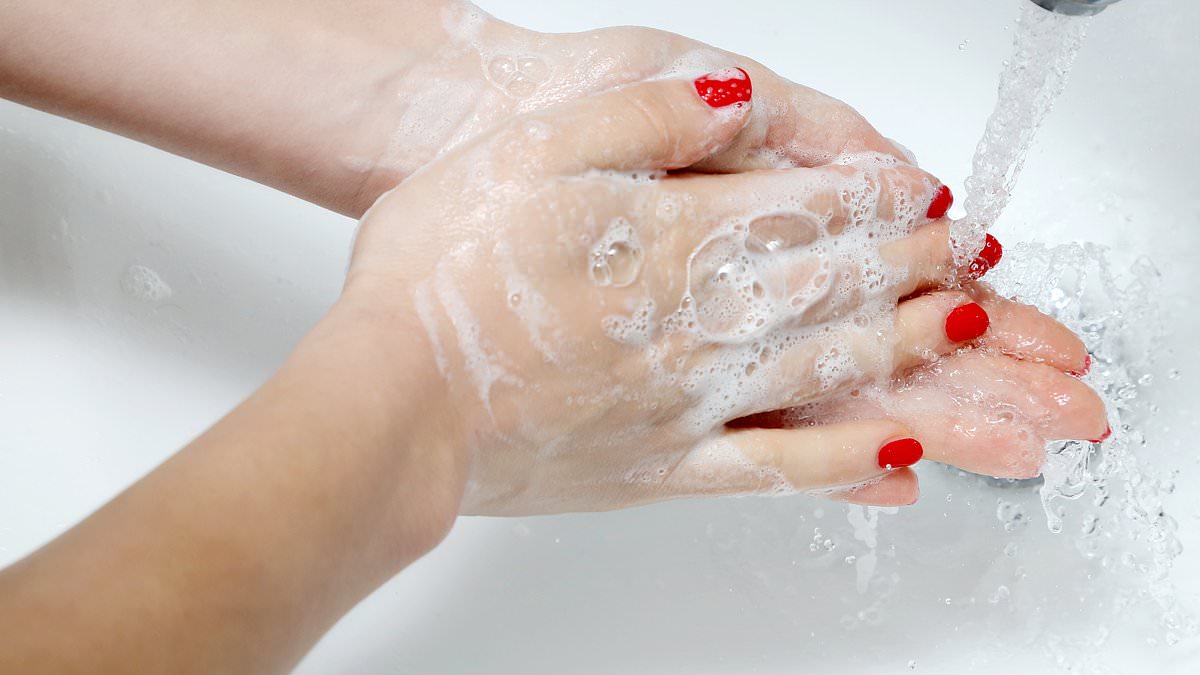Understanding Sperm Survival on Hands
Sperm survival on hands after being washed is a topic that piques the curiosity of many. Concerns often revolve around the possibility of accidental transmission or unexpected pregnancy due to residual sperm on hands, even after washing thoroughly. To address these concerns, it is crucial to have a clear understanding of how long sperm can actually survive outside the body under such circumstances.

The Lifespan of Sperm on Washed Hands
Once sperm comes into contact with air or a drying surface, it begins to lose its mobility and viability. The average lifespan of sperm on hands after being washed thoroughly is quite short – roughly a matter of minutes.
Washing hands with soap and water effectively removes the majority of sperm present on the skin. Sperm cells are delicate and cannot survive in an environment devoid of moisture, heat, and nutrients.
However, it is important to note that the time of sperm survival on washed hands may slightly vary depending on various factors such as temperature, humidity, and exposure to air.
The Importance of Proper Hand Hygiene
While the chances of transmitting viable sperm via washed hands are extremely low, it is still crucial to prioritize good hand hygiene practices. This entails thoroughly washing hands with soap and water, following proper techniques and duration for effective elimination of any potential pathogens, including sperm cells.
Regular handwashing, especially before intimate encounters or after contact with the genital area, helps prevent the spread of sexually transmitted infections (STIs) and unwanted pregnancies. It is equally important for individuals with penises to thoroughly wash their hands after ejaculation, reducing the risk of transferring sperm to external surfaces or their partner's body inadvertently.
Aside from reducing the risk of sperm transmission, maintaining good hand hygiene is vital for overall health, as it prevents the spread of germs and infections.
Conclusion
To conclude, the survival rate of sperm on hands after proper washing is minimal. With good hand hygiene practices, including effective washing techniques and appropriate duration, any residual sperm is highly unlikely to be viable or pose a risk. While hygiene should always be a priority, individuals can take comfort in knowing that the survival time of sperm on washed hands is exceedingly short, providing reassurance against accidental transmission.
Remember, practicing safe sex and maintaining proper hand hygiene are vital for one's well-being and the well-being of their partners.
Related FAQs about how long does sperm live on hands after washed
How long can sperm survive on washed hands?
On washed hands, sperm survival is extremely short, typically lasting only a matter of minutes.
Does washing hands with soap and water kill sperm?
Yes, washing hands with soap and water is an effective method of eliminating sperm. Soap and water remove sperm from the skin and create an environment where sperm cannot survive.
Can sperm on washed hands still cause pregnancy?
The chances of pregnancy occurring from sperm on washed hands are exceedingly low. Proper handwashing significantly reduces the risk of sperm transfer, making accidental pregnancy highly unlikely.
Is it necessary for individuals with penises to wash their hands after ejaculation?
Yes, it is important for individuals with penises to wash their hands after ejaculation. This ensures the removal of any residual sperm and reduces the risk of accidental transmission.
Why is hand hygiene important in relation to sperm survival?
Practicing good hand hygiene is essential to prevent the spread of sexually transmitted infections (STIs) and unwanted pregnancies. Maintaining clean hands through regular handwashing helps eliminate any potential pathogens, including sperm cells, that may be present on the hands.
Glossary about how long does sperm live on hands after washed
1. Sperm: Sperm refers to the reproductive cells, or gametes, produced by males of many species, including humans. Sperm cells are responsible for fertilizing the female egg, resulting in reproduction and the possibility of pregnancy.
2. Viability: Viability refers to the ability of a sperm cell to survive and maintain its functionality. In the context of sperm on washed hands, viability indicates the period during which sperm cells can remain alive and potentially capable of fertilization.
3. Hand Hygiene: Hand hygiene refers to the practice of cleaning and sanitizing one's hands to prevent the spread of germs, infections, and diseases. Proper hand hygiene involves using soap and water or hand sanitizers to eliminate potentially harmful pathogens.
4. Sexually Transmitted Infections (STIs): Sexually Transmitted Infections, also known as sexually transmitted diseases (STDs), are infections that are primarily transmitted through sexual contact. Examples of STIs include HIV/AIDS, gonorrhea, chlamydia, syphilis, and genital herpes.
5. Ejaculation: Ejaculation refers to the release of semen from the penis during sexual stimulation or orgasm. Semen contains sperm cells and other fluids that are essential for the reproductive process.
6. Pathogens: Pathogens are microorganisms, such as bacteria, viruses, or fungi, that can cause disease or infection when they enter the body. Good hand hygiene practices help prevent the transmission of pathogens, including those present in sperm cells.
7. Germs: Germs refer to microorganisms that can cause illness or disease. They include bacteria, viruses, and other microscopic organisms. Practicing good hand hygiene is essential in eliminating germs and reducing the risk of infection.
